Don’t miss today’s Kindle Nation Daily Free Book Alert, Friday, October 15: The Bite Before Christmas, An Unwanted Hunger, Emotions, and Minesweeper, a new (or newly outed) game for your Kindle! – plus a highly original 99-cent undiscovered gem in J.M. Pierce’s Failing Test (Today’s Sponsor), and over 100 more fully updated and category-sorted free Kindle ebook listings
Related post:
SHAKEN
J.A. Konrath
The characters and events portrayed in this book are fictitious. Any similar ity to real persons, living or dead, is coincidental and not intended by the author.
Text copyright ©2010 J. A. Konrath and published here with his permission.
All rights reserved
Printed in the United States of America
No part of this book may be reproduced, or stored in a retrieval system, or transmitted in any form or by any means, electronic, mechanical, photo copying, recording, or otherwise, without express written permission of the publisher.
Published by AmazonEncore
P.O. Box 400818
Las Vegas, NV 89140
Present day
2010, August 10
I flipped over onto my left side, my shoulders burning, my fingers beginning to go numb from the restricted blood flow. I closed my eyes and tried to relax my muscles. A cramp right now would be torture.
This new view didn’t offer any revelations. I still couldn’t see anything, still couldn’t hear anything other than the hum of some machine. I stretched out my bound legs, seeking anything other than empty space, and my bare toes touched something.
Something flat, and metal. Cool, smooth, it made an empty sound, like tapping on a Dumpster. I kicked harder, feeling it vibrate, realizing it was a wall.
This wasn’t a garage. It was a storage locker. Probably one of those self-storage spaces that people rented out.
And all at once I knew who had me. And I knew what he wanted to do with me.
My death wasn’t going to be the worst of it. Death, when it came, would be a mercy.
I flexed my knees and kicked them against the corrugated aluminum wall as hard as I could, hoping someone would hear me.
Knowing no one would. Knowing what would come next.
Twenty-five years ago
1985, October 15
Sergeant Rostenkowski walked into the classroom and cleared his throat, getting everyone’s attention. He was old—probably close to fifty—thick, with hands like two-by-fours, the knuckles covered with curly, gray hair. When he spoke, it was with utmost authority, and all of us took notes. Standing next to him was a short man in an ill-fitting suit whom we’d never seen before.
“Our guest speaker today is Dr. Malcolm Horner,” the sergeant boomed, “a clinical psychiatrist from the University of Chicago.”
Harry McGlade raised his hand and began talking without being called on. “Doc, I’ve been having these dreams where I’m trying to throw a spear at a giant pink pretzel, but every time I throw it my spear bends in half.”
Everyone in class laughed, except for me. I nudged my one-piece chair and desk away from Harry and silently pitied the poor sap who got stuck being his partner after graduating from the police academy.
Dr. Horner smiled politely. “Your problem, Cadet, is firmly rooted in the fact that you have to be the center of attention, probably because your parents didn’t love you enough.”
Harry’s grin fell away, but mine blossomed.
“My mom may not have loved me,” Harry said, “but the last time I saw your mom, which was yesterday—”
“Can it, McGlade.” Rostenkowski shot out one of his cut the bullshit looks, and Harry clammed up. “Now, please welcome Dr. Horner to our class.”
The fifty or so cadets offered the psychiatrist a weak round of applause. It was close to dinner time, we’d been running drills all day, and I figured everyone was as hungry, exhausted, and brain dead as I was. While I was sure Dr. Horner would be tremendously enlightening (baloney, because during four weeks at the police academy the speakers had ranged from bland to downright awful), now wasn’t a good time to absorb a lecture. But like any good student, I dutifully opened my notebook to a blank page and jammed a pen between my fingers.
“Gentlemen…and ladies,” Dr. Horner acknowledged me, the only woman in the room. “Today I’m going to talk about evil.”
My interest was piqued. In the nonstop lectures I’d been forced to endure about the criminal mind, the word evil hadn’t been used before. We’d had terms like socioeconomic factors and biological positivism and differential association hammered into our heads, but nothing on evil.
This prompted a predictable outburst from Harry. “I just joined so I could catch bad guys.”
While being a law enforcement officer had as much to do with how and why criminals became criminals as it did with how to catch them, part of me was with Harry on this issue. While poverty, upbringing, and genetics all contributed to illegal behavior, I was more interested in stopping it than understanding it.
But evil? That was for philosophy class, not psychology. I thought about mentioning that, but someone in the front row beat me to the punch.
“We’ve been told evil doesn’t exist. Last week, your colleague, Dr. Habersham, lectured that morality had no place in law enforcement. We’re supposed to enforce the law, not judge right and wrong.”
“I’m surprised you stayed awake long enough during Dr. Habersham’s lecture to absorb that tidbit.”
Laughter broke out. I was starting to like this guy.
“Indeed,” he continued, “some schools of philosophy dictate that morality changes according to society. For example, in ancient Rome it was considered acceptable to throw people to the lions. A little over a hundred years ago, our country bought and sold human beings. Forty years ago, Germany endorsed genocide, something still common in modern times. For a recent example look at Cambodia and the killing fields, where more than two hundred thousand people were forced to dig their own graves before being beaten to death with ax handles because their executioners wanted to save on ammunition.”
I looked around. No one was fidgeting or sleeping. Even Harry seemed to be paying attention.
“If we’re going to discuss evil,” Dr. Horner went on, “first we must decide whether evil is defined as an act, or as a trait. Let’s do a thought experiment. An innocent, let’s say a child, is murdered. By a show of hands, is this an evil act?”
Almost every hand went up. I kept mine on my desk. Dr. Horner met my eyes, pointed at me.
“Your hand didn’t go up. Can you tell us why, Miss…?”
“Streng,” I said. “Jacqueline Streng. There might be altruistic intentions for the malice aforethought and…” my mind groped for the Latin term we recently learned, “mens rea.”
Dr. Horner smiled. “I see you’ve been studying hard, Miss Streng, but please cut the jargon and give me an example when murdering a child isn’t evil.”
“What if it’s a child dying of cancer, and in terrible pain? A parent, or someone else who loves the child, might attempt murder to end the suffering.”
“Excellent, Miss Streng. Mercy killing, by law, meets the requirements for murder. The act of committing the crime, actus reus, and the willful intent to commit the crime, mens rea, is indeed malice aforethought, and according to the present law, that parent is a murderer. In this scenario, how many of you think the act is evil?”
No one raised their hand.
“But earlier, almost every hand was up. If the act itself isn’t evil, what is?”
Someone said, “Motive.”
“Ah.” Dr. Horner nodded. “Now we’re getting somewhere. A parent’s decision to murder is based on ending a child’s agony. A noble, unselfish motive. Now let me show you a motive that’s a bit more selfish. Lights, please.”
Rostenkowski killed the lights, and Dr. Horner positioned himself behind a slide projector. He switched it on, and an image threw itself up on the movie screen on the far wall.
Someone coughed—an attempt to cover up a gag. I forced myself to look even though I had to hold my breath to do so. The temperature in the room seemed to drop ten degrees.
“This victim has never been identified. The missing fingers and missing teeth have made it impossible to trace who she is. They were removed while she was still alive. The mutilation here—”
Dr. Horner used a pointer and tapped the screen, touching the victim’s pelvis.
“—was caused by a sharp instrument, a filet knife, or perhaps a scalpel. The victim was forced to eat these parts of herself. This white powder is salt, rubbed into the wounds. The burns here, here, here, and here were the result of a superheated flame. Possibly a blowtorch.”
Dr. Horner turned away from the slide and stood in front of the screen, the ghastly image projected on his face and body.
“The autopsy determined, based on how some of the wounds had had time to heal, that she’d been tortured for at least twenty-four hours. We have no suspects, but some of the atrocities committed upon her have been seen in other, similar murders. The perpetrator has been dubbed Unknown Subject K by the FBI. We’ve taken to calling him Mr. K for short. Lights please, Sergeant.”
The overhead fluorescent light flickered on. It reduced the brightness of the slide, but not enough. Details could still be seen.
“Now I present to you my earlier question. By a show of hands, who believes Mr. K is evil?”
Every hand went up but mine. Dr. Horner focused on me.
“Surely you don’t believe this is a mercy killing, Miss Streng.”
Titters from the peanut gallery.
“No. Of course not.”
“So why didn’t you raise your hand?”
“I don’t know enough about the case.”
Dr. Horner folded his arms across his chest. “What more do you need to know?”
“Was she raped?”
“Aw, come on!” Harry, naturally. “She was tortured for an entire day! What does it matter if she was raped, too?”
“Rape is a crime of violence,” I stated, “but rapists tend to enjoy the act.”
Dr. Horner tilted his head. “Sexual assault is unverified. Those parts of her were cut away. No semen was found.”
“Was this the crime scene?” I asked. “Or was she dumped there?”
“We believe the apartment where she was discovered was where the crime was committed.”
“Were there condoms found in the apartment? Condom wrappers?”
“No.”
“Was it her apartment?”
“No. The room was supposed to be unoccupied.”
“Were there neighbors?”
Dr. Horner offered a small smile. “Yes, on either side.”
“No one heard her screams?”
“No. The same thing that allowed Mr. K to pry out her teeth also kept her from making any sound. A ball gag, holding her mouth open. Sold in sex shops across town and in the backs of pornographic magazines worldwide.”
“Did he use ball gags on his other alleged victims?”
“Let’s stick with this one. What is your reasoning that Mr. K might not be evil? His objective was obviously to cause pain and death.”
I tapped my eraser against my desk. “But what was his motive? Did he do this because he knew the victim and hated her? Is he a sexual predator, a lust killer, who derived pleasure from his acts? Or was this murder dispassionate? Maybe someone paid him to commit these acts, but he had no feelings about it one way or the other.”
“You’re going to make an excellent police officer, Miss Streng,” Dr. Horner said. “And I agree with you completely. Mr. K’s intent was to murder in a ghastly fashion, but his motive might have been personal, sexual, or even financial. But the question is, which is the most evil?”
Dr. Horner stepped closer to me, so the victim’s face projected onto his own.
“If you were at Mr. K’s mercy, Miss Streng, would you prefer him to be a sexual sadist who delighted in your agony, or a cold-blooded mercenary who dispassionately inflicted these tortures because he was just following orders?”
Present day
2010, August 10
I flexed my fingers, my bound hands becoming dangerously numb. The ball gag felt enormous in my mouth. My heart was beating so fast I felt close to fainting.
I closed my eyes, forcing myself to concentrate. I’d been following the Mr. K case for more than twenty-five years. It was both my hobby and my white whale.
We’d crossed paths before. I’d logged in a lot of hours trying to catch him. A staggering one hundred and eighteen homicides had been attributed to the enigmatic killer.
Killer. Mr. Killer. That’s the label the FBI attributed to him when they found a “MR. K” written in marker on a ball gag found at one of his scenes.
His victims seemingly had nothing in common. They were spread out across the nation, both men and women, ranging in age from seventeen to sixty-eight, encompassing many different races, religions, backgrounds, and histories.
The murder methods also varied wildly. Victims had been shot, stabbed, burned, broken, sliced, beaten, smashed, drowned, dismembered, and worse. The only thing that tied these unsolveds together were Mr. K’s signatures: ball gags, salt in the wounds, and assorted, specific kinds of torture.
I wanted this guy. Wanted him bad. Unfortunately, hard evidence had always eluded me.
Ironic that I might have hard evidence very soon, but it would come at a very high cost.
I pushed away thoughts of death, concentrating on the here and now. I’d been awake long enough for my eyes to adjust, but it was still pitch black. Storage facilities usually had some kind of light, both in the units themselves and outside in the hallway. Since barely a sliver of light penetrated through any cracks, I assumed Mr. K either taped or filled in every corner of this space.
Total blackness was disorienting, making it impossible to focus on anything. But I was able to scoot toward the concrete block my legs were tethered to. I sat up, pushed myself backward against it, and explored the surface with my tingling fingers.
Too big and heavy to move. But it was square-shaped. While the edges weren’t exactly sharp, the concrete was unfinished, rough. Was it enough to cut through the nylon cord securing my wrists?
Only one way to find out. I flexed my arms, sawing my binding against the stone’s corner. I couldn’t see my progress, and might not have even been making any, but I had excellent motivation to try.
I’d seen Mr. K’s work up close and personal. And I knew what happened to the people he left in storage lockers.
Three years ago
2007, August 8
“You got anything to eat?” My partner, Detective First Class Herb Benedict, was rooting through my glove compartment.
Two blocks ahead, the man we’d been following turned his black Cadillac DTS onto Fullerton. I gave it a little gas and continued pursuit.
“Jack? Food? I’m starving here.”
Herb was as far from starving as I was from dating George Clooney. He had to be close to the three hundred pound mark. Herb, not George.
“I think there’s a box of bran flakes in the back seat somewhere.”
Herb shifted his bulk around, making my Nova bounce on what little shocks it had left. After some grunting, and several glistening sweat beads popping out on his forehead, he found his prize.
“Got it.” Herb cradled the cereal box in his hands like it was a kitten. Then he frowned. “They’re bran flakes.”
“That’s what I said they were.”
“Where’s the milk?”
“No milk.”
“You eat them dry?”
I sighed. “No. I eat them with milk. They fell out of my grocery bag, and I keep forgetting to bring them into the house.”
“What am I supposed to do with these?”
“I have no idea. You asked if I had any food. I gave you what I had.”
Herb made a face. The Cadillac pulled over to the curb, a few hundred yards ahead of us, next to a warehouse boasting the sign “U-Store-It.” I parked alongside a fire hydrant and picked up the binoculars.
“Couldn’t you have at least bought raisin bran?” Herb asked.
“I could have. But I didn’t.”
“Who doesn’t like raisin bran?”
“My mother. They’re for her.”
Herb frowned. I peeked through the lenses and watched our person of interest exit his vehicle while Herb opened up the box.
“You’re kidding me,” I said, glancing at my partner.
“I gotta eat something. Look at me.” He patted his protruding belly. “I’m wasting away to nothing.”
Herb looked like he’d just eaten Santa Claus.
“We’ve got the rest of the day ahead of us,” I told him. “I don’t know if I want to spend it with you after you eat a box of bran.”
“I just want a few nibbles.”
My junior partner tore into the bag. I studied the surroundings. It wasn’t a good part of town. Industrial mostly, a few overgrown, fenced-in lots, some abandoned factories. Certainly not a place where a man driving a new Cadillac would hang out.
“What’s he doing?” Herb asked, his voice muffled by a mouthful of cereal.
“He’s walking over to a self-storage building.”
“Is he holding any milk? Because damn, this is dry.”
“He’s empty-handed.” I played with the focus. “Jacket is swinging funny on his left side. He’s packing.”
“Maybe he’s going to put it in storage.” Herb cleared his throat. “You got anything to drink? These flakes sucked up all my saliva. It’s like eating dust.”
“I might have a bottle of water left. Check between your feet.”
Herb rocked forward, trying to reach the floor. He failed. He tried again, bending even further, and then began to cough, spitting bran flakes all over my dashboard.
“Sorry,” he mumbled.
I winced at the mess Herb had made. He tried once more for the water, stretching and straining, his face turning red with effort, and snatched the bottle. Herb held up his prize, triumphant. Then he frowned. “This is empty.”
“He went in.” I lowered the binocs. “Now we have a choice. We can wait for him to come out, then bust him, or surprise him inside and bust him.”
“I vote for waiting,” Herb said. “Less work. And if he’s going in for something, maybe he’ll come out with it.”
We waited. Herb did a half-assed job wiping the bran off the dash, then sucked down the remaining five drops of water at the bottom of my bottle.
“I had a weird dream last night,








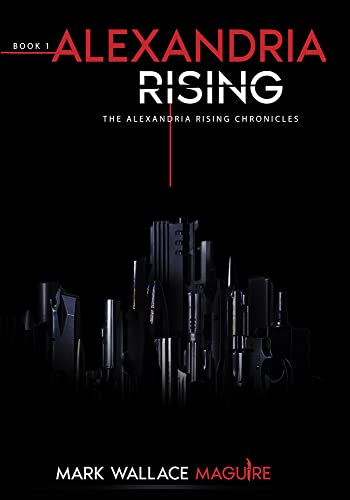

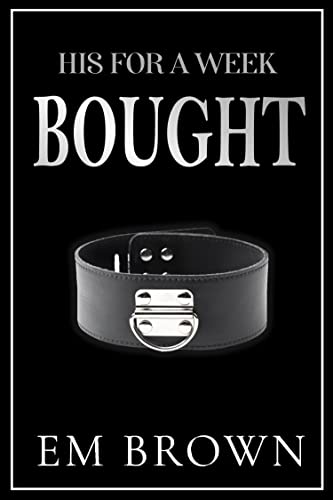
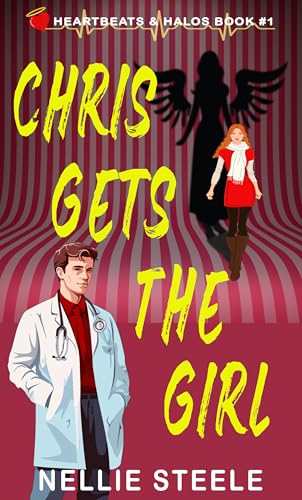

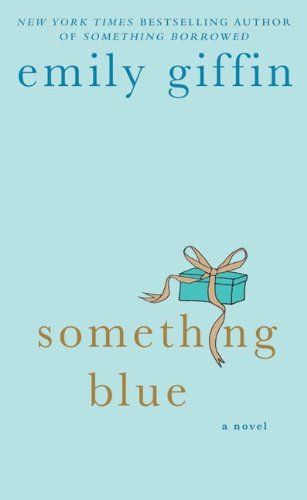



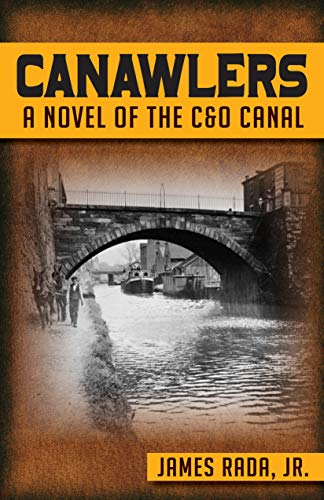

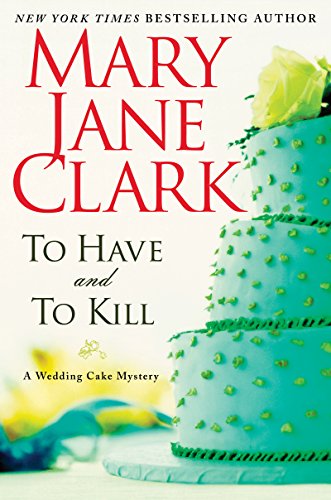










![[close]](https://www.jungle-search.com/swindwalker/close.gif)













![FORTUNE IS A WOMAN [Keeping Mr. Right] (Optimized & Ad-Free)](https://images-na.ssl-images-amazon.com/images/I/51BN8zFv1RL._SL60_.jpg)






























